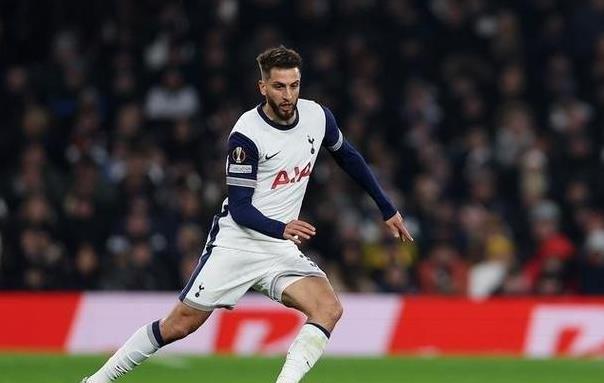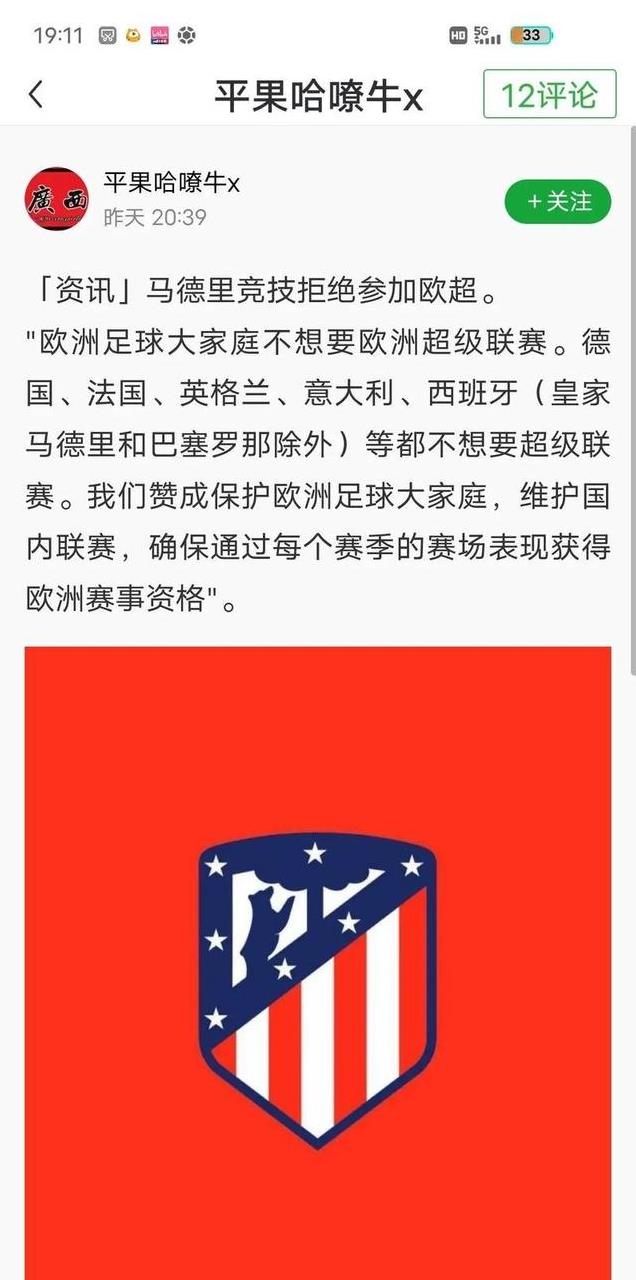The new proposal for the European Super League has set the entire European football world ablaze! Can you imagine? 96 teams, a four-tier league system, and a prize pool of up to 3.5 billion euros! This is not just the birth of a competition, but a massive change in the history of European football. You might say it sounds like the ultimate evolution of the Champions League, and you're right; this is the European Super League. But here's the issue: the emergence of this new league isn't just about competing fiercely with the Champions League for viewership, prize money, and the passion of fans; it could potentially crush the Champions League, completely stripping UEFA's established events of their market share, rendering them insignificant. No wonder everyone says that the successful hosting of the European Super League will deal a devastating blow to the existing European football landscape.

The new competition format: four tiers, 96 teams. Do you remember the previous European Super League proposal? It was a private league for elite clubs, seemingly a domineering game of capital. This time, however, the European Super League has undergone a complete reform. It's been renamed! Yes, the European Super League has officially changed its name to the Unity League. It feels like it's suddenly become more approachable, less commercialized, perhaps to make people feel that this time it's genuinely united some smaller and medium-sized clubs. Not only is the league's name more populist, but the format has also become more down-to-earth. There are four tiers of leagues: Star League, Gold League, Blue League, and United League, each with a different number of teams. The Star League and Gold League each have 16 teams, while the Blue League and United League have 32 each. Does it sound a bit like a large-scale football grading exam? Each tier of teams will compete in home-and-away matches, with each team playing at least 14 games, so the intensity is not insignificant. But don't forget, the promotion and relegation system is no small matter. The top two teams from each tier will be promoted to the next higher tier, while the bottom two will be relegated to the next lower tier. This means that if a club doesn't work hard to improve its strength, it could drop out of this glittering stage after a few seasons and return to a lower league. The phrase "fierce competition" doesn't even begin to describe it; it's life or death!

Where does the money come from, and who foots the bill? If you think the massive scale of this league would saddle clubs with mountainous financial pressure, then you're mistaken. Look, this Unity League not only gives clubs the chance to make big money but may even allow some smaller clubs to get a slice of the pie. With an initial fund of 3.5 billion euros, this figure sounds like finding a huge red envelope. The champion of each season will receive a 400 million euro prize, and the runners-up of other league tiers will also receive bonuses according to a certain ratio. Listen to these numbers; it's almost unbelievable. It's no wonder the Unity League is all about money unity! Moreover, apart from clubs themselves making big money, the involvement of sponsors and broadcasters will bring a wave of business opportunities. Who wouldn't want to participate in an event that can attract global attention? Think about it; these commercial contracts and advertising revenues will undoubtedly skyrocket the commercial value and exposure of clubs to new heights. The commercialization is stronger than the Champions League, and the schedule is arranged more reasonably, not conflicting with national leagues, nor will it leave fans and clubs lost in the dense schedule of the season. It's a win-win situation for everyone.

UEFA is worried; what should they do? Here's the problem: this new league is directly targeting UEFA's independent kingdom. To put it bluntly, the European Super League is an aggressive capital monster; it challenges not only the market share of the Champions League but also aims to kick UEFA off its dominant position in European football. If European elite clubs decide to break away from UEFA and join the European Super League, won't the Champions League become completely outdated? At that point, who would still want to watch matches that no longer include top-tier elite clubs? After all, the European Super League's funds and event arrangements are indeed eye-catching. It not only has a substantial prize pool but also provides more exposure opportunities for major clubs. The league management is freer, allowing clubs to adjust their strategies based on their actual situations, which may even be more attractive than the Champions League. Small clubs can also use this platform to emerge and enhance their competitive level and commercial value.

One netizen's view: the tragedy of capital dominance. Some netizens believe that, in a sense, the emergence of the European Super League is not a bad thing; it allows some smaller clubs to seize the opportunity to speak up and enhances their commercial exposure. On the other hand, such competitions are entirely driven by capital. For ordinary fans, the charm of football should be pure, about emotion and love, not just commercialization. This league will bring about the rise of some wealthy clubs but may also lead to the loss of some traditional football clubs.

Another netizen's perspective: the new opportunities of the European Super League. However, there are also fans who don't see it that way. I think the European Super League, although it appears to be about making money, also brings opportunities to some smaller clubs. Especially those clubs that have always been on the fringes of the Champions League, often relying on the Europa League for survival. But under this four-tier system, small teams can gain more exposure and match opportunities, thereby enhancing their status in European football.

A third netizen's comment: the shadow of death over the Champions League. Another netizen bluntly states that the emergence of the European Super League has cast a significant shadow of death over the Champions League. If most elite clubs really join this new league, the Champions League might become a second-rate event. Those traditional strong teams breaking away from UEFA might not even be able to see a match with any spectacle. The original appeal of football is the competition between top teams, and the European Super League provides a better platform; perhaps the Champions League really should retire.

Summary: the future of football, a battle between money and emotion. Regardless of your perspective, the launch of the European Super League will certainly change the European football landscape. For clubs, it offers more income, better exposure opportunities, and more match opportunities. For fans, it could mean higher-level matches, more intense confrontations, and richer viewing experiences. Like all reforms, the European Super League also brings many hidden concerns. Excessive commercialization may gradually turn football, a sport originally filled with emotion, into a game of capital. Who knows where the charm of football will go in the coming years?
